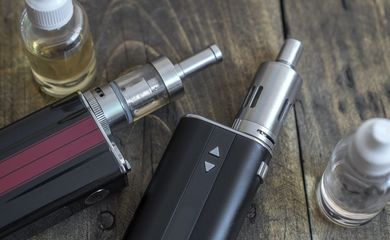
Brazil’s national drug regulator Anvisa decided on Wednesday (Jul. 6) to maintain the ban on the import, advertising and sale of electronic cigarettes in Brazil. The restriction began in 2009, but marketing continues to occur illegally in the country.

The decision was taken during the 10th meeting of the body's collegiate board. The board followed unanimously the vote given by director Cristiane Rose Jourdan.
According to the director, scientific studies show that the use of electronic smoking devices (ESDs) is related to an increased risk of smoking in young people, the potential for dependence, and several damages to lung, cardiovascular and neurological health.
Electronic cigarettes are devices powered by a lithium battery and a cartridge or refill, which stores the liquid. This device has an atomizer, which heats and vaporizes the nicotine. The device also has a sensor, which is activated when taking a drag, and automatically the battery and the LED light are turned on.
The vaporization temperature of the resistor is 350°C. In conventional cigarettes, this temperature reaches 850°C. When heated, ESDs release a liquid vapor similar to a conventional cigarette.
Electronic cigarettes are in their fourth generation and they have now a higher concentration of toxic substances. There are also heated tobacco cigarettes. They are electronic devices that heat a stick or a capsule of compressed tobacco to a temperature of 330°C. In this way, they produce an inhalable aerosol.



